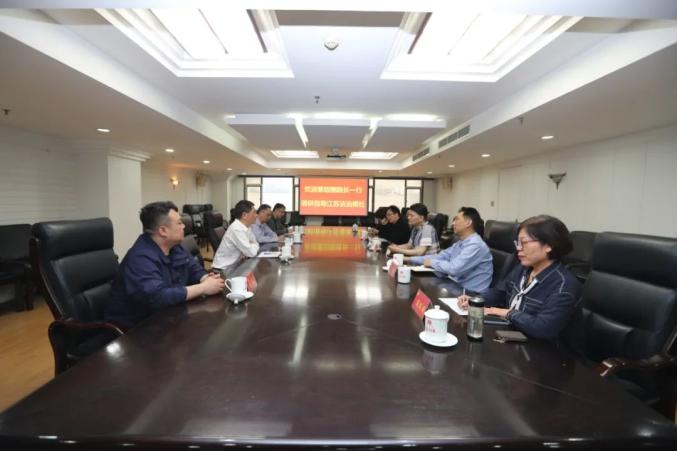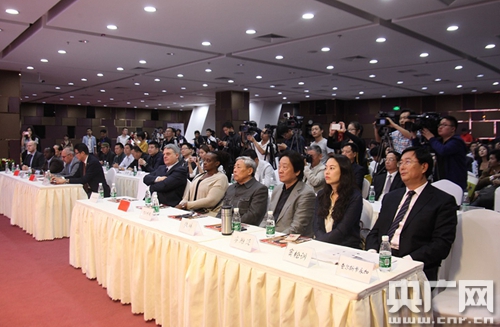Insurance System Private Equity Territory Expands Again
Insurance System Private Equity Territory Expands Again
In terms of investment strategy, insurance funds are expected to break through the existing development bottleneck, enhance business innovation capabilities, and broaden business scope, which is conducive to achieving complementary advantages and strong alliances. "The three batches of pilot projects have approved a total of 222 billion yuan, and it is expected that in the future, supervision will support more insurance companies to participate in the pilot projects.
The highly anticipated pilot reform of long-term investment in insurance funds has new trends. On August 13, a Beijing Business Daily reporter learned that recently, China Taiping Private Equity Securities Investment Fund Company was approved, and the number of insurance-based private equity securities fund management companies has increased to 6, and "long money" of more than 200 billion yuan is accelerating to the capital market.
In the view of industry insiders, insurance funds are reshaping the capital market ecology by establishing private equity securities fund management companies. Inject stability in the short term and help economic transformation in the long term. Overall, long-term investment will help insurance companies optimize asset-liability matching and alleviate interest rate spread loss pressure; for the market, the investment preferences of insurance funds will bring stability and help the development of strategic areas such as technological innovation and advanced manufacturing.
Insurance companies actively respond to long-term investment pilot
Recently, Taiping Asset, a subsidiary of China Taiping, was approved by the State Administration for Financial Regulation, agreeing to invest in the establishment of Taiping (Shenzhen) Private Equity Securities Investment Fund Management Co., Ltd.
Regarding the establishment of the private equity securities investment fund company, Taiping Asset stated that it aims to actively respond to the pilot reform of long-term investment in insurance funds. In the next step, it will strictly regulate fund operation and management, establish and improve a long-term assessment mechanism and investment strategies that meet the characteristics of insurance funds, give full play to the role of long-term and patient capital of insurance funds, further increase the investment of medium and long-term funds in the capital market, firmly serve the national strategy and serve the real economy, and better play the role of "stabilizer" and "ballast stone" of insurance funds.
Since the pilot was launched, the scale of my country's long-term investment reform pilot projects for insurance funds has continued to expand, and regulatory authorities have approved relevant institutions to carry out pilot projects in batches. It is understood that the pilot reform of long-term investment in insurance funds will be launched in October 2023. In November of that year, Xinhua Insurance announced that in order to further increase long-term investment assets that conform to the company's investment strategy, optimize the matching of assets and liabilities of insurance funds, and improve the efficiency of capital use, the company and China Life Insurance respectively invested 25 billion yuan to jointly initiate the establishment of a private equity fund company. Xinhua Asset and China Life Assets invested 5 million yuan respectively to jointly initiate the establishment of a fund manager, serving as the manager of the above-mentioned private equity fund company.
Overall, as 2025 enters the pilot pace, the pace of pilot projects has accelerated significantly. At the beginning of the year, eight companies including Taibao Life Insurance, Taikang Life Insurance, Sunshine Life Insurance, PICC Life Insurance, China Life Insurance, Taiping Life Insurance, Xinhua Insurance, and Ping An Life Insurance were approved to participate in the second batch of pilot projects, with a total funding scale of 112 billion yuan; the third batch of pilot projects approved subsequently was 60 billion yuan, and many insurance companies including Taiping Life Insurance were listed. The total scale of the three batches of pilot projects reached 222 billion yuan, which means injecting long-term capital increase into the market.
In addition to Taiping Asset's latest approved private equity securities investment fund management company, the established insurance private equity securities fund management companies also include Guofeng Xinghua (Beijing) Private Equity Fund Management Co., Ltd., Taikang Wenxing (Wuhan) Private Equity Fund Management Co., Ltd., Taibao Zhiyuan (Shanghai) Private Equity Fund Management Co., Ltd., Hengyi Chiying (Shenzhen) Private Equity Fund Management Co., Ltd. and Sunshine Hengyi Private Equity Fund Management Co., Ltd. At present, many insurance-based private equity securities investment funds have entered the operational stage.
"The regulatory authorities have piloted 'long-term holding', encouraged insurance companies to play the role of 'patience capital' and optimize resource allocation." Zhai Dan, general manager of Xinhuo Private Equity, said that the successive approval of insurance private equity securities fund management companies marks the maturity of a professional operation model, and the reduction of insurance funds relying on external funds, but directly participates in the market through self-built platforms. This can reduce information asymmetry, improve investment transparency, and promote product innovation in the capital market.
The influence of insurance funds will be further enhanced
Under the pilot project of long-term investment reform, which targets will insurance funds be invested in are attracting attention.
Taking the "Honghu Fund" invested by China Life Insurance and Xinhua Insurance as an example, in the first batch of pilot projects, Honghu Fund's first phase was mainly invested in key industries related to the national economy and people's livelihood, and selected listed companies with obvious competitive advantages, excellent governance structure, and good business profit model, and bought and held for a long time.
In May this year, the State Administration for Financial Regulation approved China Life Assets to participate in the pilot reform of long-term investment in insurance funds. China Life Assets said that together with the first two batches of reform pilot projects that have been approved previously, the first and last three phases of funds jointly helped Honghu Fund play a greater role in stabilizing the market and the economy.
According to reports, Honghu Fund Phase III will consistently adhere to the principles of marketization, rule of law and "long money and long investment" and the program framework, adhere to the long-term capital attributes of insurance funds, adhere to the concept of high-quality development, and invest in and hold large-cap blue-chip companies with good corporate governance, stable business operations, relatively stable dividends, relatively good stock liquidity, and good dividend returns, further reduce the impact of short-term stock price fluctuations on the financial statements of insurance companies and promote the realization of long-term, stable and sustainable investment returns.
Zhai Dan analyzed that insurance funds have long-term liabilities and need to match long-term assets to stabilize returns. During the pilot, Honghu Fund's first phase of 50 billion yuan of funds was "all implemented" and achieved "low risk, higher than the benchmark return", indicating that private equity funds can provide stable returns by investing in high-quality stocks in the secondary market; they can help insurance companies cope with the current interest rate spread loss pressure in the low interest rate environment and improve overall solvency. For example, China Life Insurance, Xinhua Insurance and others can smooth out return fluctuations and avoid short-term market impacts. In the long run, it can also enhance the financial resilience of insurance companies and support the sustainable development of the industry.
From a trend point of view, the establishment of insurance-based private equity securities fund management companies may bring more new possibilities to the insurance funds themselves and the market. Financial commentator Guo Shiliang said that insurance-based private equity funds will become a new profit growth point for insurance funds. Insurance private equity will help expand the business scope and profit model of insurance funds, and enhance the competitiveness and influence of insurance funds. In terms of investment strategy, insurance funds are expected to break through the existing development bottleneck, enhance business innovation capabilities, and broaden business scope, which is conducive to achieving complementary advantages and strong alliances.
"The three batches of pilot projects have approved a total of 222 billion yuan. It is expected that in the future, supervision will support more insurance companies to participate in the pilot, pushing the total scale to exceed 300 billion yuan." Regarding the establishment trend of insurance-based private equity funds, industry insiders predict that in the next step, it may expand from corporate funds to contract funds to meet different risk preferences and investment needs. While leading insurance companies dominate and differentiated layouts are formed at the institutional establishment level, small and medium-sized insurance companies may participate in the layout through cooperation and other means.





